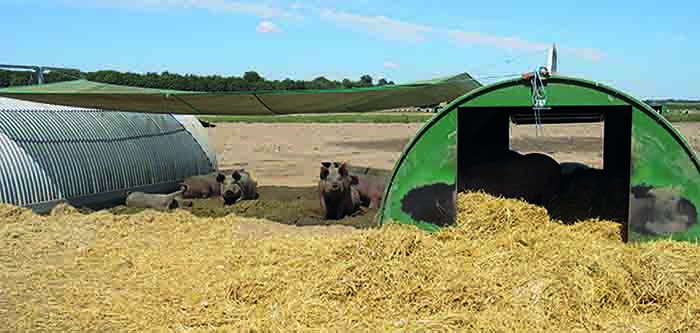Joseph Lunt is veterinary manager at Wayland Farms
With the recent heatwave, looming concerns over African swine fever (ASF) and increased ‘animal rights’ activity, it is a good time to think about planning for unexpected events.
The Red Tractor scheme requires that ‘a documented plan for the effective management of serious incidents and potential emergency situations that threaten the welfare of livestock, food safety or the environment must be in place and known to key staff’. This should cover: feed and/or water equipment failing, fire, extreme weather, disease outbreaks, reporting activist activity (to police, relevant trade body, your certification body, customers) and pollution incidents.
I am going to concentrate on two of the above.
Extreme weather is only going to become more of a concern as global warming increasingly results in harsher winters and hotter, drier summers. It is important in both cases to ensure that all animals are able to access their feed and water. Recently, the hot weather saw a rise in sow mortality due to heat stress in East Anglia. It is therefore incredibly important for these animals to maintain the ability to cool themselves, via wallowing or misting spraying.
This is particularly important as we change from conventional, wallow-type water troughs to tanks with nipples, to provide better water hygiene.
Use of bowsers of water and shades is particularly important in the heat to prevent mortality and drops in fertility. It is often forgotten that pigs are physiologically designed for a dappled forest environment. It is also often forgotten that pigs, like us, can be sunburned. You can provide anti-inflammatories should this happen, but it is essential to ensure adequate shade is provided.
We, as an industry, should be on high alert for both domestic and international disease threats. It is incredibly important to reiterate good hygiene practices, including minimising movements on to site.
This can be, for example, through having a letter box at the end of the drive, but the highest risks are lorries – for both live and dead stock. Lorries should arrive clean, in line with the #MuckFreeTruck campaign, especially with current concerns regarding dysentery and ASF.
One drop of infected blood or a single ham sandwich is enough to infect millions of individuals. This is especially of concern to the outdoor industry, with signage being so important, including in the case of wild boar populations in the South West, where clinical disease could go under the radar for much longer than in a commercial herd.
It is also worth mentioning deadstock management. As seen locally, when mortality rises, in sows especially, normal provisions are quickly overwhelmed. It is therefore important to consider the usage of trailers for storage and also clearly marking these animals with permanent dye to prevent animal rights activists presenting false images of the industry.




